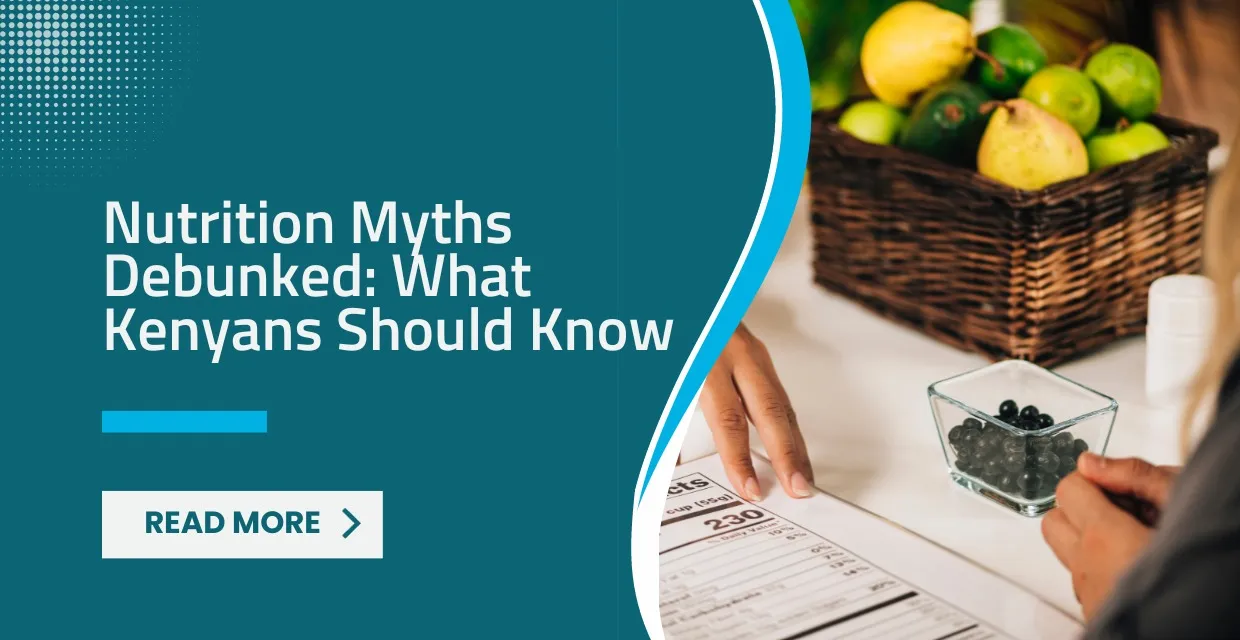Is Your Gluten-Free Diet Really Healthy?
Gluten-free diets have become increasingly popular in recent years, with many people making the switch to improve their health. However, is a gluten-free diet really...

Several nutrition myths have become commonplace in Kenya, where diverse cultures and traditions influence dietary habits. These myths can lead to misconceptions about healthy eating and impact overall well-being. It's crucial to address these myths, especially for individuals seeking specialized healthcare, such as from a cardiology specialist in Bungoma, an ENT specialist in Kikuyu, or accessing dermatology services in Bungoma. Let’s explore and debunk some common nutrition myths in Kenya.
Debunked: Traditional Kenyan foods like ugali, sukuma wiki, and beans are often considered less healthy. However, these foods are rich in essential nutrients. Ugali, made from maize, is a good source of carbohydrates; sukuma wiki (kale) is rich in vitamins A, C, and K; beans are an excellent source of protein and fiber. The key is to consume them in balanced portions.
Debunked: While protein is essential for muscle building and repair, excessive protein intake, especially from red meat, can lead to health issues like kidney strain and heart disease. This is particularly important for patients consulting a cardiology specialist in Bungoma. A balanced diet with moderate protein intake is ideal.
Debunked: Skipping meals, particularly breakfast, can lead to overeating later in the day, slowing down metabolism, and eventually leading to weight gain. Regular, balanced meals are crucial for maintaining a healthy weight.
Debunked: Margarine, once touted as a healthier alternative to butter, often contains trans fats, which are harmful to heart health. Moderation is vital and natural, unprocessed fats are generally healthier.
Debunked: While traditional medicine has its place, it should not replace a balanced diet. Nutrients from a varied diet are essential for overall health and cannot be entirely substituted by traditional remedies.
Debunked: Fats are an essential part of a healthy diet. The type and amount of fat consumed is what matters. Unsaturated fats, found in avocados, nuts, and fish, are beneficial for health, unlike saturated and trans fats.
Debunked: Total avoidance of sugar is not necessary for diabetes management. The key is to manage the overall intake of carbohydrates and monitor blood sugar levels alongside regular consultations with healthcare providers.
Debunked: While diet impacts skin health, it’s not an instant fix for skin issues. Consistent, balanced nutrition and specialized dermatology services in Bungoma can effectively contribute to skin health.
Debunking these nutrition myths is crucial for the Kenyan population to make informed dietary choices. Balanced nutrition, combined with regular health check-ups and consultations with specialists like a Cardiology specialist in Bungoma, an ENT Specialist in Kikuyu, or dermatology experts in Bungoma, is the cornerstone of maintaining good health and preventing diseases. Remember, a well-informed approach to diet and nutrition is vital to a healthier lifestyle.
Partager cet article